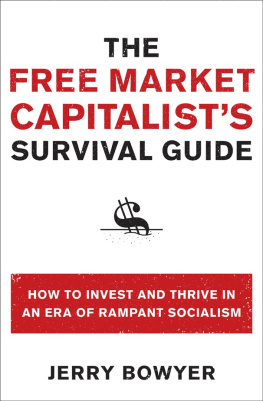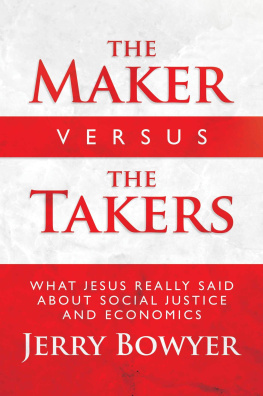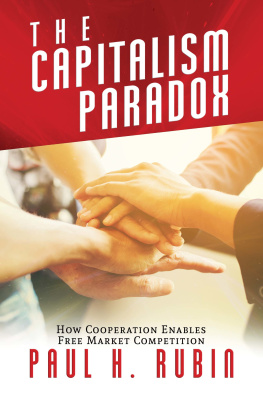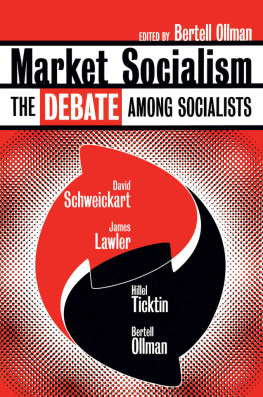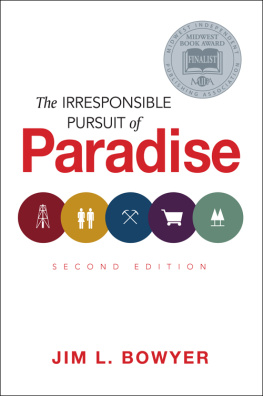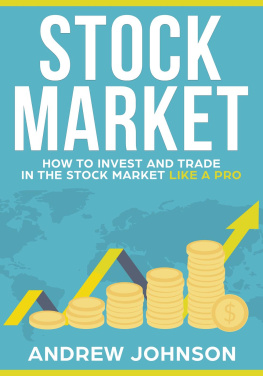Y ou are not out of the woods yet. I know about the Republican electoral momentum... and about the legislative resistance to some of the presidents agenda... and about the adaptability of American entrepreneurs. Like you, Ive read the sanguine analysis of Obamacare and the alleged overreactions of its opponents. I know all about the Tea Partiers, too; in fact, I am one of them myself. None of those facts will prevent the era of economic malaise and financial disruption through which you and I must pass.
Anyone who thinks we dodged a bullet on health care has failed to gather the proper intel about the weapons we face. Obamacare is not something that flows from the barrel of a conventional firearm; it is much more like an agent of biological warfare. It does not explode out of the barrel and either immediately hit (or miss) you. Its effects spreadgradually. It emerges from the original enabling legislation and spreads down through the heavily left-of-center bureaucracy at HHS and the IRS and all the other acronyms that end with an s but dont actually produce any palpable services.
The simple truth is that no matter what else passes the legislature and no matter how many congressional seats change hands, America elected a president who was outside of the mainstream of our political culture, and the office of president is a very powerful one in our constitutional system. It was designed that way as a reaction to the extremely weak executive powers inherent to the Articles of Confederation. The powers inherent to our chief executive are found largely in Article II of the Constitution and they are considerable. So the loss of firm control of the legislative branch by the party in charge of the White House may be a setback for the Obama agenda, but only a partial one. Presidents who are hostile to the American tradition of free enterprise can do quite a bit of damage on their own with the powers that are explicitly granted to them.
But our troubles are even worse than that, because we have a president who does not consider himself to be limited only to the powers that have been granted to him. He is not limiting himself to the powers enunciated in Article II. He understands that the founders of our country held a conception of government consistent with negative libertiesthat is, freedom from government intrusionsinstead of one consistent with positive libertiesthat is, entitlements to government services. But going back at least as far as his days on the faculty of the University of Chicago Law School, he has rejected the founders view in favor of a more expansive and redistributionary role for the national government.
Such a president can wreak havoc upon health care, energy, labor, insurance, financial, and telecommunications markets. He can use the enormous purchasing power of the federal government to punish non-union, non-green, non-domestic, non-patriotic, and otherwise noncompliant businesses. He can use the enormous powers of the office of Attorney General to enforce vague statutory prohibitions against anticompetitive, predatory, and manipulative market actors. Such a president can do this, and much more, without the approval of Congress.
As of this writing, the president and his team have already begun to launch such legislative bypass operationsthat is, policy initiatives that bypass the traditional Article I role of the legislature and govern economic life progressively more and more through executive orders, initiatives, and regulatory rule-making powers.
Only the courts stand as a possible bulwark against such executive powers incursions into the private economy, and, unfortunately, the courts have mostly surrendered in those battles since the late 1930s. No prudent investor would dream of depending on either the self-restraint of the administration nor the external restraint of the judiciary as a protection against such market disruptions.
Nor would any prudent investor ignore the threats coming from another branch of government, which is neither entirely executive nor entirely legislative, neither entirely public nor entirely private. The Federal Reserve System, especially the Federal Open Market Committee (FOMC), which determines our money supply through open market operations, represents nearly as large a risk factor as do executive actions. The Fed controls the monetary base, the money out of which the members banks derive the money that we all save and spend. By extension, it controls the level of inflation, speculation, and the value of the dollar relative to other currencies. As of this writing, Fed policy is the most expansive of our lifetime, perhaps of our peacetime history. More congressional Republicans wont save us from that; in fact, it is Republicans who gave us Dr. Bernanke and his magical money machine. Much of that monetary base has already moved out of reserves and into our economy. Much more of it probably will. You are already in a high-risk environment for inflation.
These are not easy predictions for me to makeIm an optimist. For years Ive been the guy whom TV and radio producers call when theyre looking for someone to counterbalance a doomsayer theyve booked for their programs. Ive debated the coming collapse-ers and the looming depression-ers, the gold bugs, and the Y2K profiteers. Ive done this during Republican and Democratic administrations. They were wrong under Reagan; they were wrong under H. W. Bush; they were wrong under Clinton; and they were wrong under seven years of W. Bush. There were, of course, recessions amid those decades of boom, but nothing like the Armageddons and apocalypses on which newsletter publishers, numismatists, and assorted authors have made a handsome living.
Things are different now. Im still an optimist. I believe that with Gods grace, a little wisdom, and a lot of courage, America will come to her senses. In the meantime, your world has changed before your eyes. Let me make it more personal: This is not just a matter of reading unusual words in the newspaper like nationalize or judicial modification or expropriation; your daily life is changing right now. So is mine.
Ive been thinking about this event for a long time. At a key time in my childhood I was raised by my paternal grandparents, who had lived and suffered through the Great Depression. They communicated to me through stories, and through their own frugal ways, the sense of scarcity that they brought with them out of that time of national crisis. My grandfather was a socialist and a small business owner at the same time. I guess both came from the same root: a mistrust of corporate America. When he died, I read his books and became a Fabian socialist like Pop-Pop.
I threw myself into the study of economics and politics. I read the economics classics of the Right and the Left starting in my early teens. Eventually, I moved on from theoretical economics to accounting and then finance. I wanted to understand how wealth is created and destroyed. I wanted to understand why the Great Depression occurred and how to avoid another. I researched to find out whose predictions had been right about that terrible tragic contraction in the 1930s, and who had failed to see it coming. I asked similar questions about the stagflationary 70s and the booming 80s and late 90s. Who saw it coming? Who got it right? Who got it wrong?
It took almost a decade to figure out that Pop-Pop was wrong about socialism. It took two more decades to learn that he was right about entrepreneurialism. This book is about both. It is about how to use the latter to survive and overcome the former.
You will not find lists of investments in this book. Ive read scores of books about finance and investing, and very few of them have lists of stocks and bonds to buy. Thats how it should be. A good investment can turn into a bad investment in less than a minute; all it has to do is see its price appreciate from a level of undervaluation to a level of overvaluation. Stock tips are for newsletters, or now perhaps only for e-mails and Twitter. Good investment books are not built on tips; theyre based on principles. You will be the judge of whether this book is a good investment book, but I assure you that it is a book based on principles. I have, to the best of my ability, reasoned through to these principles. I may well be wrong about many things, but like an obedient algebra student, Ive shown all my steps. If Im wrong, youll find it easier to see where the error crept in.

